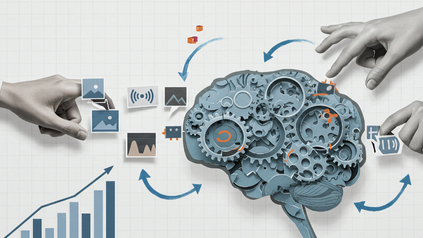As Artificial intelligence (AI) becomes more commonplace, it is important for businesses and people alike to understand the interconnection between AI and data privacy. AI is significantly influencing the way businesses operate, with its potential to automate processes and provide data-driven insights. In this blog article, we will look at the intersection of AI and data privacy, discussing the potential risks, the legal requirements, and how organizations can ensure compliance with applicable privacy laws. We will also provide resources to help organizations navigate the complexities of AI and data privacy.
Data privacy refers to the right of individuals to have control over their personal information and how it is used, and it is essential that organizations take this into account as they adopt and utilize artificial intelligence.
Where AI and Data Privacy Intersect
One of the main ways in which AI and data privacy intersect is through the collection and analysis of data. In order to improve their performance and accuracy, AI systems require large amounts of data to learn from and make predictions. This data is often collected from a variety of sources, including social media platforms, websites, and sensors, and can include sensitive information such as financial data, health records, and personal preferences.
While the collection and analysis of data can bring many benefits, it also has the potential to infringe on individuals’ privacy. For example, if an AI system is analyzing data from social media profiles, it may be able to infer sensitive information about a person’s political views, sexual orientation, or medical conditions. This information could then be used by the AI system or sold to third parties without the individual’s knowledge or consent.
In order to address these concerns, it’s important for organizations to implement strong data privacy policies and practices. This includes ensuring that individuals are aware of how their data will be used and giving them the option to opt out of data collection if they choose. It’s also important to have secure systems in place to protect against data breaches and unauthorized access to personal information.
Another way in which AI and data privacy intersect is through the use of machine learning algorithms. These algorithms allow AI systems to learn and adapt over time, but they can also perpetuate biases and discrimination if the data they are trained on is not diverse or representative. For example, if an AI system is trained on data that is predominantly from one racial or ethnic group, it may have difficulty accurately predicting outcomes for individuals from other groups.
How to Mitigate the Risks of AI and Data Privacy
To mitigate these risks, it’s important for organizations to ensure that their data sets are diverse and representative. This can be challenging, as it may require manually reviewing and curating data, but it’s necessary to ensure that AI systems are fair and unbiased. It’s also important to regularly review and monitor AI systems to ensure that they are not exhibiting biases or discrimination.
In addition to the collection and analysis of data and the use of machine learning algorithms, there are many other ways in which AI and data privacy intersect. For example, AI systems can be used to analyze and predict individuals’ behavior, which could have significant implications for their privacy. AI systems can also be used to personalize and target ads, which raises questions about the use of personal information and the potential for manipulation.
Given the complexity and evolving nature of the intersection of AI and data privacy, it’s crucial that organizations take steps to ensure that they are acting ethically and in accordance with relevant laws and regulations. This includes conducting risk assessments to identify potential privacy risks and implementing measures to mitigate them. It’s also important to stay up to date on developments in the field and to regularly review and update data privacy policies and practices.
In Conclusion
In conclusion, the intersection of AI and data privacy is a complex and evolving landscape that requires careful consideration and attention. As AI systems continue to grow in importance and usage, it’s crucial that organizations take steps to ensure that personal information is protected and used ethically. By implementing strong data privacy policies and practices and regularly reviewing and updating them, organizations can navigate this intersection and make the most of the many benefits that AI has to offer.
As you navigate the privacy landscape for your organization, check out our eBook, “In Data We Trust” for tactical information on how to use data privacy as a method for gaining trust and creating meaningful connections with your customers.








